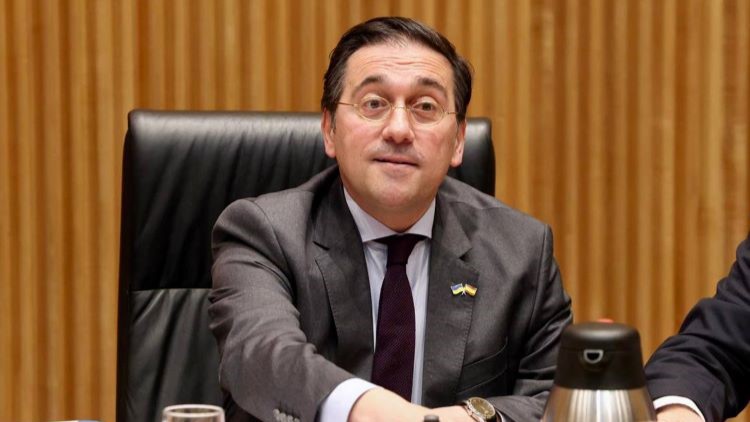The Diplomat
The Minister of Foreign Affairs, José Manuel Albares, defended again yesterday in Congress the change of course of relations with Morocco, which, he said, has already given “concrete results” in areas such as migration, the fight against jihadism or economic cooperation. However, as on all previous occasions, both he and his party were once again left alone in defending the new stage with Rabat.
During his appearance in the Foreign Affairs Committee, Albares assured that the new stage of relations with Rabat, based on “solid pillars”, is already giving “concrete results”, such as the dismantling of six criminal and terrorist networks in the last 18 months, the agreements of the recent High Level Meeting, held in Rabat; the installation of 1,100 Spanish SMEs in Morocco, the increase of trade in 12,000 million euros and the creation of “the basis for Spanish companies to access Morocco’s investment plan”.
He also stated that, thanks to bilateral cooperation, irregular immigration has been reduced by 69% in Andalusia and 82% in the Canary Islands with respect to 2022, which is “saving thousands of lives”. “We are cooperating in the fight against the mafias that traffic in human beings,” he added.
The minister also stressed that this new stage with Rabat is already bringing “the benefits of greater stability and prosperity” to both the citizens of Ceuta and Melilla and those of the Canary Islands and Andalusia, and assured that the reopening of land borders and customs in the two autonomous cities will be carried out “through an agreed timetable” and by means of “experimental steps” so that it takes place in an “orderly and gradual” manner, in order to avoid “scenes of the past, contrary to the dignity of the people”, such as “avalanches and atypical trade”.
Albares also reported on cooperation in matters of “culture and understanding”, with the opening of bilingual sections, the reinforcement of the teaching of Spanish “in up to a hundred schools” and the creation, “for the first time”, of a Spanish public institute in Rabat. On the Saharawi conflict and the change of position of the government of Pedro Sanchez in favor of the Moroccan autonomy plan, he assured that Spain is “with the United Nations” because “the solution of the conflict has to come from the United Nations and Spain is ready to help”.
As on previous occasions, Albares received strong criticism from the opposition, especially from the Popular Party (which the minister accused of “not understanding the importance of having a good relationship with Morocco”) and even from some government partners. During her intervention, the spokeswoman of the PP, Valentina Martinez Ferro, questioned the change of position on Western Sahara “in exchange for nothing” and even questioned the mutual benefits of the new relationship, because the opening of customs in Melilla and Ceuta has not yet taken place and, for the moment, there is only “a secret calendar” without a time horizon. He also recalled that King Mohamed VI did not receive the President of the Government, Pedro Sanchez, during the High Level Meeting in Rabat.
For her part, the spokesperson of ERC, Marta Rosique, recalled that, with regard to Morocco, “there is not even the same position in the Government” and regretted that, in its attempt not to bother Rabat, the Executive has decided not to address issues such as human rights, the tragedy of Melilla or the Pegasus espionage plot and has not even supported the bill to grant citizenship to Saharawis born before 1976. Likewise, the spokesman of EH Bildu, Jon Iñarritu, valued positively the new relationship with Morocco, but rejected that “the price to pay” was “the abandonment of the Saharawi people and looking the other way when tragedies occur on Spanish soil like that of Melilla”.







